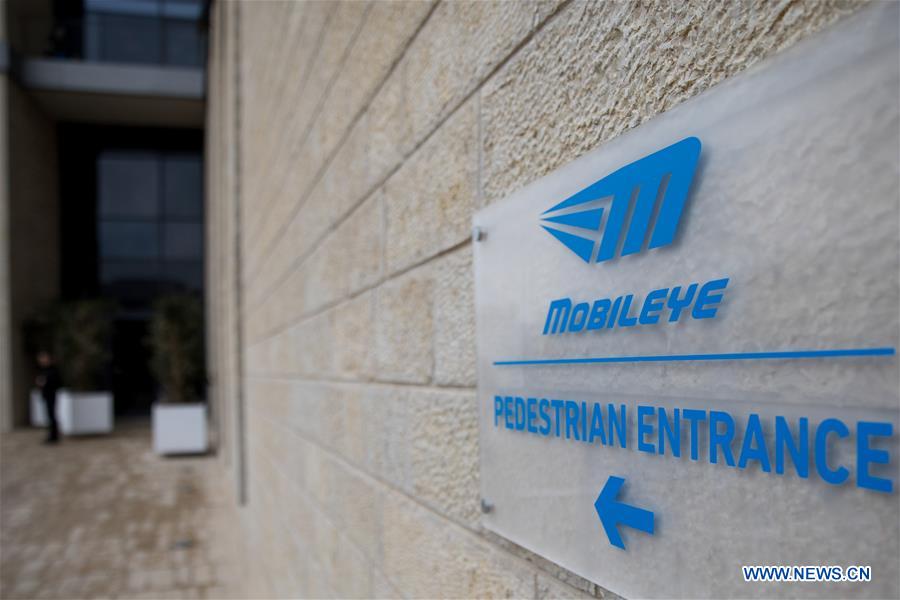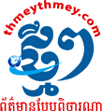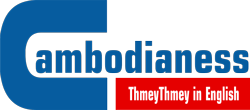English-Français
អន្តរជាតិ

×![]()
ដោយ: Xinhua
JERUSALEM, Jan. 30 (Xinhua) -- Israeli high tech industry, which was dominated by male Jews, is now witnessing more females and turning to be ethnically diverse.
In Jerusalem, a city that accommodate Jews, Muslims and Christians, more and more women and Arabs are joining the high tech job in recent years trying to break the glass ceiling.
The change is probably due to a recent upsurge in demand in the high tech job market in Jerusalem, as the number of workers in the industry has been declining as shown by figures of the Central Bureau of Statistics (CBS).
"I expect the trend to grow in 2019. The nation's biggest problem is getting more tech talents, and Jerusalem, with its diverse work force, excellent academia, and one of the world's most collaborative tech communities, can be the solution," said Hanan Brand, founder of MadeinJLM, a non-profit organization aimed at promoting the Jerusalem high tech eco-system.
The "all-boys club" needs to change as it is "not a long term sustainable strategy for a growing sector," according to a recent report by Start-Up Nation Central (SNC), a non-profit organization, and the Israeli Innovation Authority (IIA), which said that there are an estimated 15,000 unfilled jobs in the Israeli high tech industry.
Last week, the first 42 graduates, all Arabs or ultra-orthodox women, completed a four-month program in computer sciences initiated by SNC in Jerusalem in preparation for their future careers in leading technology firms.
They received intense training in skills for core programming jobs, and job interviews.
According to Maty Zwaig, director of human capital programs at SNC, Jerusalem was chosen as the venue for the program because of its openness and tolerance towards diversity.
"We thought Jerusalem would be a good opening point that will create proof of success also for populations that have less faith in themselves and also for companies who do not have such people in their teams today," said Zwaig.
Rabia Abu Aquel, a 26-year-old Arab Israeli from the northern town of Kfar Yasif, has completed his degree and now faces the task of finding a job.
"The main thing I wanted to make sure is to get the right knowledge ... to make sure that I make the right choices while moving to a better job and make progress in the field," said Abu Aquel, a graduate of the SNC program.
For the Arab graduates, the challenge is great.
According to the report, two thirds of Israeli firms do not employ Arabs at all, and those who do, have Arab employees that represent less than 10 percent of their workforce. Only 1.4 percent of the high tech employees in Israel are Arab.
For the Arab Israelis which account for about 20 percent of the population, it is usually challenging to work in the high tech sector.
Not only do they have to overcome political prejudice and hostility that sometimes spillover from the Arab-Israeli conflict, but also a cultural and language gap that they need to bridge.
"It is very important that all different cultures in Israel take part in the high tech industry because it will improve the sector. Taking advantage of the citizens that are part of this country to develop its industry is a pride for the country," Abu Aquel told Xinhua.
Together with other graduates, he hopes to be recruited by one of the four big Jerusalem hi-tech firms who sponsored the program, namely Mobileye, Lightricks, Ex Libris and 40Nuggets.
"I really improved in how to introduce myself, present myself and make connections. This is something I was not used to throughout my whole life," said Mutaz Manaa, another graduate of the program.
In addition, more ultra-orthodox Jewish women are taking jobs at high tech companies, amid a list of challenges.
In the last decade, the ultra-orthodox Jewish women have increasingly departed from their traditional roles as mothers and wives in clerical jobs in their own communities. Now they need to enter companies who hesitate to hire them.
More and more religious women are studying computer sciences. They still want to maintain their religious way of life, like working with women only, adhering to strict dietary rules and working flexible hours that will enable them to continue running their homes and families while developing successful careers.
Hodaya Marziano, a 23-year-old Jewish woman graduate from the program, complained that there were too many obstacles for women like her to get jobs other than in religious groups.
Together with her two fellow students, Marziano developed an application to better control a computer screen through fingerprints as part of their finishing project for the graduation hackathon.
According to a recent study conducted by the Haredi Institute for Public Affairs, most ultra-orthodox Jewish women work in the education sector. Only 4 percent of religious women work in high tech field.
"We felt that there is a small bridge missing between the end of their academic training at university and the beginning of their employment," Zwaig told Xinhua.
"We just need to make that happen. With time, the gap between these populations and the high tech industry will become smaller," Zwaig added.
© រក្សាសិទ្ធិដោយ thmeythmey.com






















